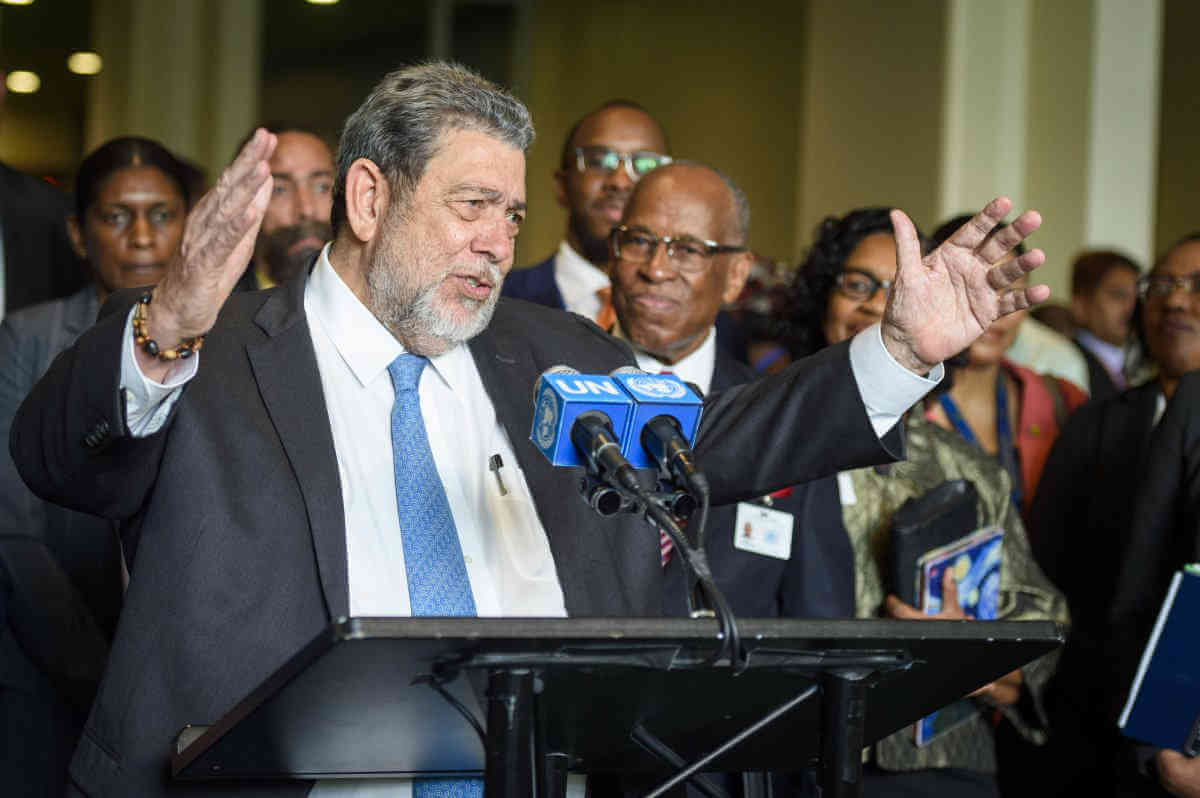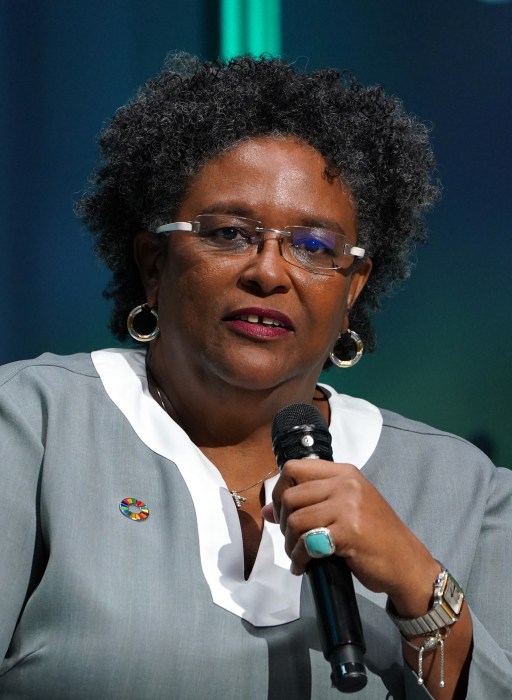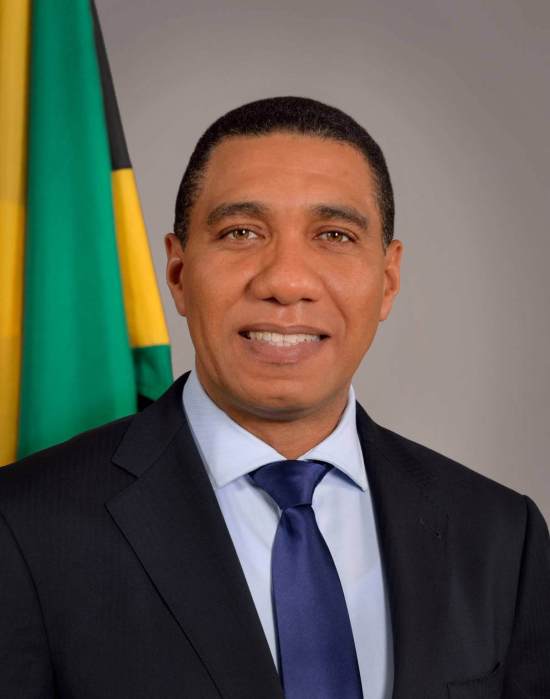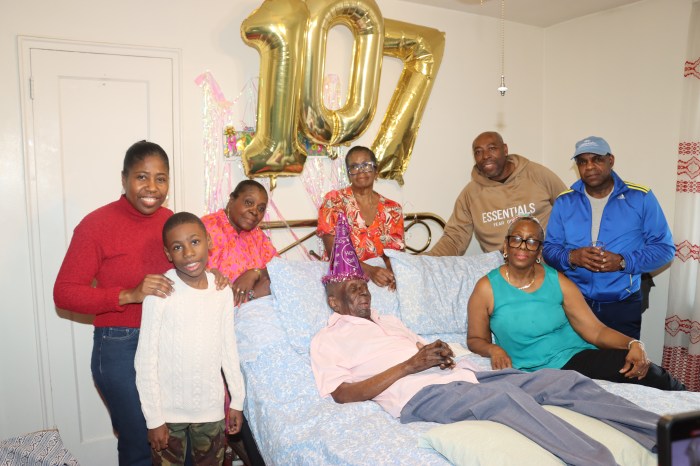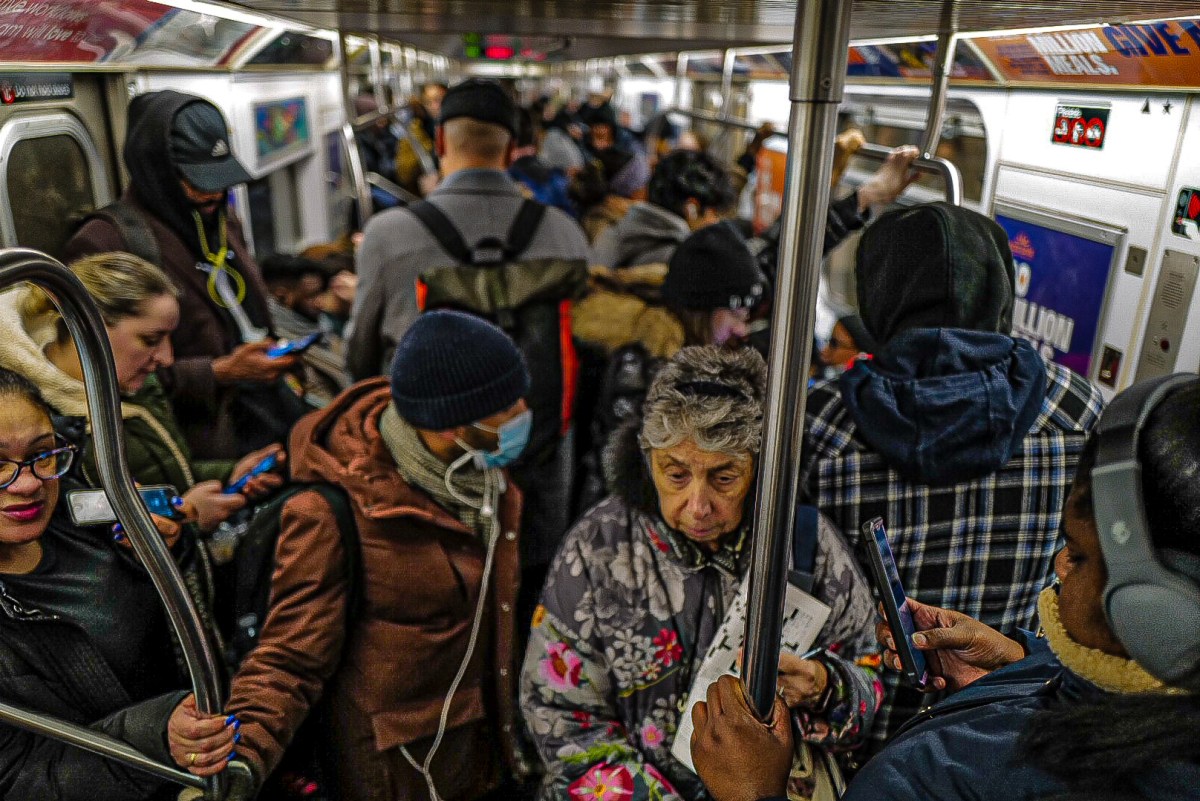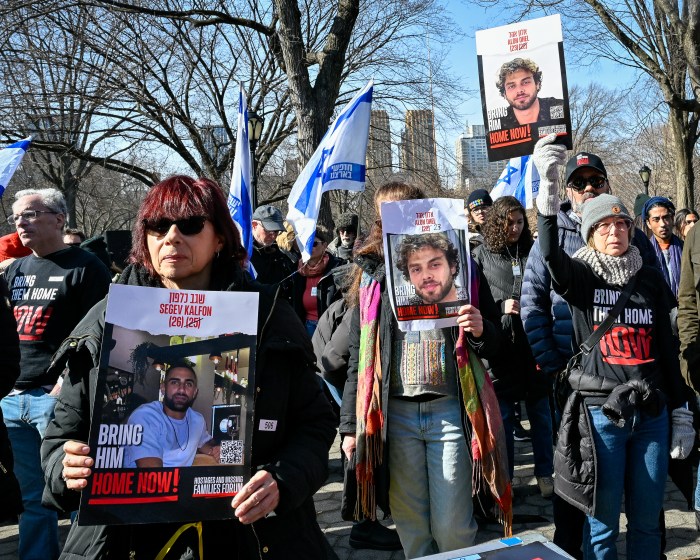As jubilation rips through the Vincentian community at home and in the Diaspora over St. Vincent and the Grenadines’ election Friday as a non-permanent member of the United Nations’ Security Council, Deputy Prime Minister and Foreign Affairs Minister Sir Louis Straker has described as “historic” his country’s election.
“We had an excellent result,” Sir Louis told Caribbean Life in an exclusive interview Friday night. “We give God thanks and thank the GRULAC (Group of Latin America and Caribbean) and all countries. Many of them have come to us and said they were pleased with the result, notwithstanding El Salvador’s stance.
“It’s an historic occasion, and we’re very, very pleased,” added the Deputy Prime Minister, who was with Prime Minister Dr. Ralph E. Gonsalves, Culture and Sports Minister Cecil “Ces” McKie and other Vincentian diplomats at the UN for Friday’s vote.
Sir Louis said just hours before the historic vote, El Salvador said it would challenge St. Vincent and the Grenadines for the one open seat in GRULAC.
UN diplomats had expressed surprise about El Salvador’s last-minute move in light of the fact that the regional bloc had agreed in December to endorse St. Vincent and the Grenadines as the regional candidate.
“You don’t do it like that,” the Voice of America (VOA) quoted an unidentified western diplomat as saying disapprovingly.
Most other countries seemed to agree, with El Salvador only garnering six votes among the 193 cast by secret ballot.
According to the UN, 185 countries voted in favor of St. Vincent and the Grenadines, with two abstentions. St. Vincent and the Grenadines only needed 128 votes to hold the seat.
UN General Assembly rules state that candidates running for a seat on the Security Council must win a two-thirds majority of votes to succeed, even if they are running uncontested.
“I will like specially to reach out to the people of El Salvador and its people,” Gonsalves told reporters at the UN immediately following Friday’s vote, when asked about El Salvador’s stance. “We’re about peace and security. I’m grateful to all who aided in this campaign.”
On Friday, St. Vincent and the Grenadines became the country ever to hold a Security Council seat.
“We’re the smallest country in terms of geography and in terms of population,” Sir Louis said.
St. Vincent and the Grenadines is 150 square miles in size and has a population of about 110,000.
Other countries elected in Friday’s vote in the UN General Assembly were Estonia, Niger, Tunisia and Viet Nam.
The four states, along with St. Vincent and the Grenadines, will take up their seats as non-permanent members of the Security Council in January 2020, replacing Cote d’Ivoire, Equatorial Guinea, Kuwait, Peru and Poland, the UN said.
Every year, it said five countries are elected to the 15-member Council (10 of whom are non-permanent) for a two-year term, according to a geographical rotation set by the General Assembly in 1963.
The UN said this is to ensure fair regional representation: five from African and Asian and Pacific States; one from Eastern Europe; two from Latin American States; and two from Western European and Other States (WEOG).
While Niger, Tunisia and Viet Nam were elected unopposed, according to the UN, two of the five seats were contested: El Salvador competed with St. Vincent and the Grenadines to represent the Latin American and Caribbean group (GRULAC); and Romania lost out to Estonia in the East European group.
Gonsalves told reporters outside the General Assembly Hall: “We just had a contested election. The great country of El Salvador contested against us.
“I just want to reiterate that this is an historic occasion,” he said. “We’re the smallest country to be elected to the Security Council. We’re committed to the principle of the equality of state. We intend to work closely with many countries of the Security Council.”
With St. Vincent and the Grenadines’ election, Straker re-emphasized that his country “will have a voice on the Security Council in terms of Climate Change.
“For St. Vincent and the Grenadines, it’s a significant vote,” the foreign affairs minister said. “It’s a significant vote for the Caribbean, for GRULAC, and we’ll have a voice where there are conflict and peace.
“We’re now on the world’s stage, where we can make a contribution,” he stressed.
Under an amendment to the UN Charter that went into effect in 1965, the General Assembly increased the number of non-permanent members in the Security Council from six to 10, with five new members elected for a two-year period every year.
The UN said this brought the membership of Security Council, the primary UN body tasked with the maintenance of international peace and security matters, to 10 non-permanent members, who sit alongside the five permanent, veto-wielding members: China, France, Russia, the United Kingdom and the United States.
The non-permanent seats are allocated according to a rotation pattern set by the Assembly back in 1963, according to the UN, “to ensure a proportionate representation over time from the different parts of the world: five from African and Asian States; one from Eastern European States; two from Latin American States; and two from Western European and Other States.”
Following a 2014 General Assembly resolution, the UN said elections to the non-permanent Security Council seats were moved from October to June “to give incoming countries more time to prepare for their terms before assuming their responsibilities.”



